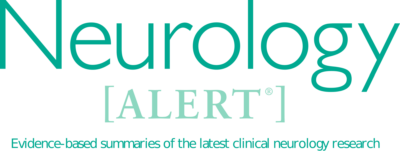
Neurology Alert – July 1, 2023
July 1, 2023
View Issues
-
Long-Term Outcome for Patients with CIDP
In a careful meta-analysis of published series of treated patients with chronic inflammatory demyelinating polyneuropathy (CIDP), about one-half of patients achieved a good long-term remission with independent function and only about 8% were unable to walk independently.
-
Mpox-Associated Neurological Disease
Neurological consequences of mpox (monkeypox) are rare and have not been attributed to direct viral invasion of the central nervous system.
-
Gene Therapy for Leber’s Hereditary Optic Neuropathy Patients: The REFLECT Trial
Gene therapy for Leber’s hereditary optic neuropathy, a mitochondrial genetic disorder, using nuclear deoxyribonucleic acid that is transported into mitochondria, shows promising benefits in the treatment of this disease.
-
Decompressive Craniectomy for Acute Subdural Hematoma
There has been longstanding discussion about whether craniectomy results in better outcomes than craniotomy with preservation of the skull for treatment of patients with acute subdural hematomas. This multicenter, international clinical trial was designed to compare the long-term results, benefits, and complications of decompressive craniectomy vs. craniotomy in patients with acute subdural hematomas.
-
Is Dexamethasone Effective in the Treatment of Chronic Subdural Hematomas?
Chronic subdural hematomas are common disorders and may occur after minor trauma or no trauma. For decades, nonsurgical therapies have been tried and proposed, including the use of corticosteroids. Various case series and nonrandomized trials of treatment with corticosteroids have been reported to show benefit, but efficacy of steroid therapy has been uncertain.
-
Endovascular Thrombectomy for Large Ischemic Core Strokes
Endovascular thrombectomy has been rapidly adopted throughout the world for the treatment of patients with acute ischemic stroke and large vessel occlusion. This approach has achieved strong recommendations in stroke guidelines. However, the trials that form the basis of the recommendations have strict imaging recruitment criteria.
-
Glycoprotein IIb/IIIa Receptor Inhibitor Tirofiban for Ischemic Stroke
Glycoprotein IIb/IIIa receptor inhibitors are potent, rapidly acting antiplatelet agents that have been tried in pilot studies to treat acute ischemic stroke, without significant benefit. Tirofiban is fast-acting, highly selective, and has a short half-life that allows bleeding time to return to normal within three hours after administration is stopped. The investigators proposed that this medication may be of benefit in patients with acute ischemic stroke who arrived within 24 hours after stroke onset but are not eligible for thrombolysis or thrombectomy or have progression of stroke symptoms after receiving thrombolysis.
